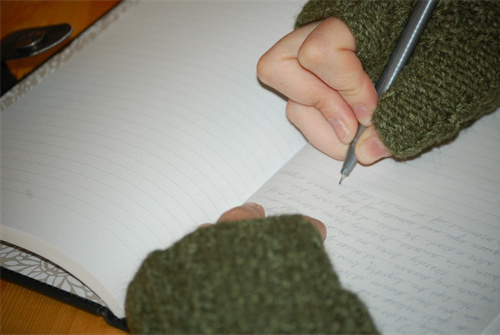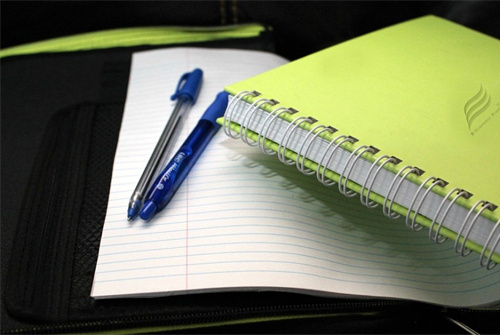【简介】感谢网友“网络整理”参与投稿,这里小编给大家分享一些,方便大家学习。
腊八节英语作文带翻译
在我家乡有一句民谚,“腊八腊八,冻掉下巴”,意思是腊八这天非常冷。虽说不至于把下巴的冻掉,但是腊八这天冷却是真的。这一天俗称“腊八节”,从这天开始民间就开始准备年货,杀猪、宰羊、蒸馍、做新衣、买鞭炮就开始了,年味也就一天比一天浓烈。下面是关于腊八节英语作文带翻译的内容,欢迎阅读!
腊八节英语作文
The Laba porridge is also called the five flavor porridge of the seven treasures. China has been drinking the history of the Laba porridge for more than one thousand years. It first began in the Song Dynasty. Every day on the day of the Laba, all the families have to do the Laba porridge. In the Qing Dynasty, the custom of drinking the Laba porridge was more prevalent. At the court, the emperor would give the minister to the Minister of Wen and Wu to give the porridge to the Laba. In the folk, families also have to do the Laba porridge, sacrificing the ancestors; at the same time, the family is reunited to eat together and give gifts to relatives and friends.
"Laba" is the grand festival of Buddhism. Before around the temple for Buddha, cooked porridge for the Buddha. Legend had later can get the Buddha bless, can also increase the life-extension. So people call it the "Buddha congee." Southern song dynasty lu you did: "the present Buddha congee is more feedback, the festival new jiang village."
Varied from different regions of China, laba rice porridge, among them with Beijing's most exquisite, porridge in red jujube, lotus seeds... A total of more than 20 kinds. The seventh evening, began to busy, washing rice, fruit, in began to cook in the middle of the night, and stew until the second day of early morning, laba rice porridge is ok. Can you think, such a complex is bad to drink? Pay attention to the family, but also the fruit first carved into all kinds of things, and in the pot boil. Laba rice porridge boil, ancestor worship to worship god. After to give friends and family, must be sent out before noon. The last is the whole family to eat.
A bowl of porridge with so much knowledge, China is really not the kui is a civilized country! I'm so proud of themselves as Chinese!
腊八粥也叫七宝五味粥,我国喝腊八粥的历史,已经有一千多年。最早开始于宋代。每逢腊八这一天,家家都要做腊八粥。到了清朝,喝腊八粥的风俗更是盛行。在宫廷,皇帝要向文武大臣赐腊八粥。在民间,家家户户也要做腊八粥,祭祀祖先;同时,合家团聚在一起食用,馈赠亲朋好友。
“腊八”还是佛教的盛大节日。以前各地佛寺作浴佛会,煮粥供佛。传说吃了以后可以得到佛祖的保佑,还可以增福增寿。所以人们把它叫做“佛粥”。南宋陆游诗云:“今朝佛粥更相馈,反觉江村节物新。”
中国各地腊八粥的花样很多,其中以北京的最为讲究,粥里有红枣、莲子……总计不下二十种。初七的晚上,就开始忙碌起来,洗米、泡果,在半夜时分开始煮,一直炖到第二天的清晨,腊八粥才算熬好了。你想,这样复杂能不好喝吗?讲究的人家,还要先将果子雕刻成各种花样,再放在锅中煮。腊八粥熬好之后,要先敬神祭祖。之后要赠送亲友,一定要在中午之前送出去。最后才是全家人食用。
一碗粥有这么多知识,中国真不愧是文明大国啊!我真自豪自己是中国人!
腊八节英语作文
The Laba Festival, the day in most parts of China have the custom of eating Laba porridge. Laba is a harvest year with eight fresh food and fruits boiled, usually for the sweet porridge. The Central Plains have many farmers prefer salty to eat Laba porridge, porridge in addition to rice, millet, mung bean, cowpea, peanut, jujube and other raw materials, but also add pork, radish, cabbage, vermicelli, seaweed, tofu and so on.
腊八节这天我国大多数地区都有吃腊八粥的习俗。腊八粥是用八种当年收获的新鲜粮食和瓜果煮成,一般都为甜味粥。而中原地区的许多农家却喜欢吃腊八咸粥,粥内除大米、小米、绿豆、豇豆、花生、大枣等原料外,还要加肉丝、萝卜、白菜、粉条、海带、豆腐等。
Laba Festival, the original ancient harvest celebrations, thanks to ancestors and gods (including the goalkeeper, household God, house of God, Kitchen God, well God) rituals, in addition to worship ancestors the activities, but also by people infected. This activity comes from the ancient Nuo (avoid the outbreak of the ancient ceremony of exorcism.) One way to prehistoric times, the exorcism of medical treatment illness. The activities of the twelfth lunar month as the witchcraft epidemic of custom drum drive, this and other areas in Hunan is still retained Xinhua. Later evolved into a commemoration of the Buddha Sakyamuni Road religious holiday. Xia said the December date, "Ka-ping," Shang was "clear Si", Zhou as "big wax"; due to be held in December, it said the month is the twelfth lunar month, known as La La at the festival that day. Pre wax at the third after the winter solstice Xu day fixed in the twelfth lunar month before the Northern and Southern started eighth day.
腊八节原自古代欢庆丰收、感谢祖先和神灵(包括门神、户神、宅神、灶神、井神)的祭祀仪式,除祭祖敬神的活动外,人们还要逐疫。这项活动来源于古代的傩(古代驱鬼避疫的'仪式)。史前时代的医疗方法之一即驱鬼治疾。作为巫术活动的腊月击鼓驱疫之俗,今在湖南新化等地区仍有留存。后演化成纪念佛祖释伽牟尼成道的宗教节日。夏代称腊日为“嘉平”,商代为“清祀”,周代为“大蜡”;因在十二月举行,故称该月为腊月,称腊祭这一天为腊日。先秦的腊日在冬至后的第三个戌日,南北朝开始才固定在腊月初八。
"Said the text" contains: "Shu at December after the winter solstice festival three hundred gods." Visible, Shu third day after the winter solstice was December day. Buddhism after the intervention of the Prince at eighth day in December changed since then Xiangyan into the vulgar.
《说文》载:“冬至后三戍日腊祭百神。”可见,冬至后第三个戍日曾是腊日。后由于佛教介入,腊日改在十二月初八,自此相沿成俗。








